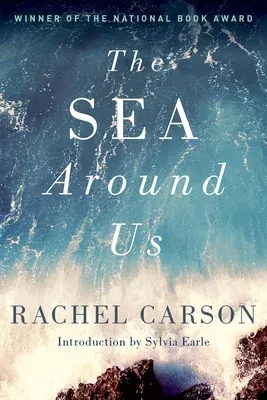Originally published in 1951, The Sea Around Us is one of the most
influential books ever written about the natural world. Rachel Carson's
ability to combine scientific insight with poetic prose catapulted her
book to the top of The New York Times best-seller list, where it
remained for more than a year and a half. Ultimately it sold well over a
million copies, was translated into 28 languages, inspired an Academy
Award-winning documentary, and won both the National Book Award and the
John Burroughs Medal.
The Sea Around Us remains as fresh today as when it first appeared
over six decades ago. Carson's genius for evoking the power and primacy
of the world's bodies of water, combining the cosmic and the intimate,
remains almost unmatched: the newly formed Earth cooling beneath an
endlessly overcast sky; the centuries of nonstop rain that created the
oceans; giant squids battling sperm whales hundreds of fathoms below the
surface; the power of the tides moving 100 billion tons of water daily
in one bay alone; the seismic waves known as tsunamis that periodically
remind us of the oceans' overwhelmingly destructive power. The seas
sustain human life and imperil it. Today, with the oceans endangered by
the dumping of medical waste and ecological disasters such as the Exxon
oil spill in Alaska, the gradual death of the Great Barrier Reef, and
the melting of the polar ice caps, Carson's book provides a timely
reminder of both the fragility and the centrality of the ocean and the
life that
abounds within it. Anyone who loves the sea, or who is concerned about
our natural environment, will want to read, or re-read, this classic
work.

